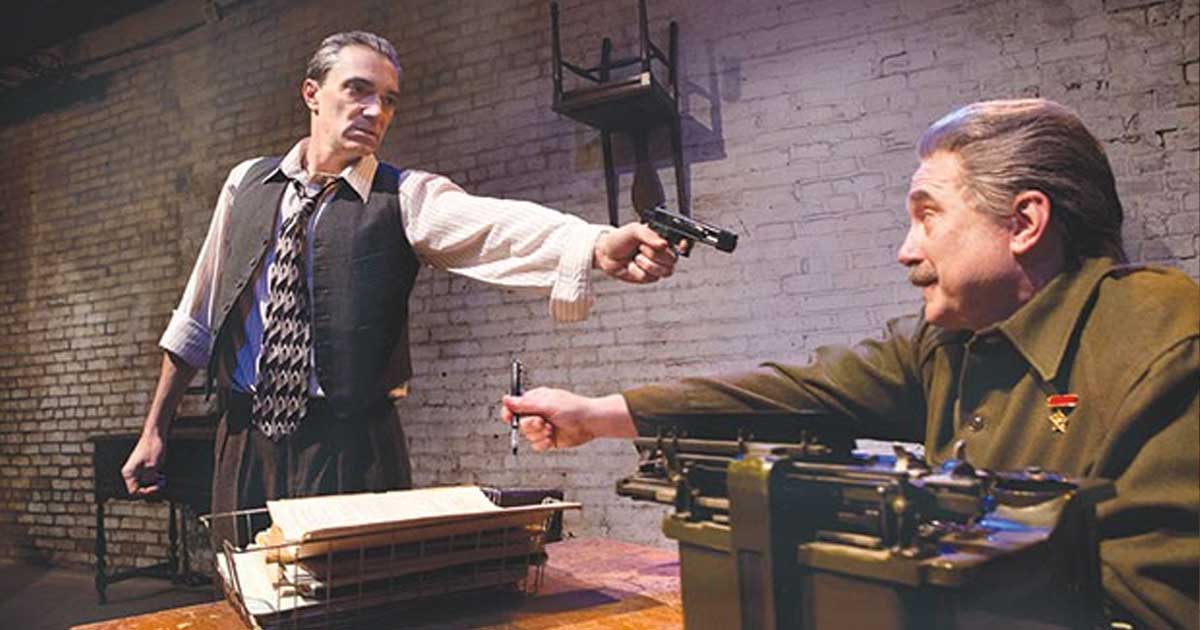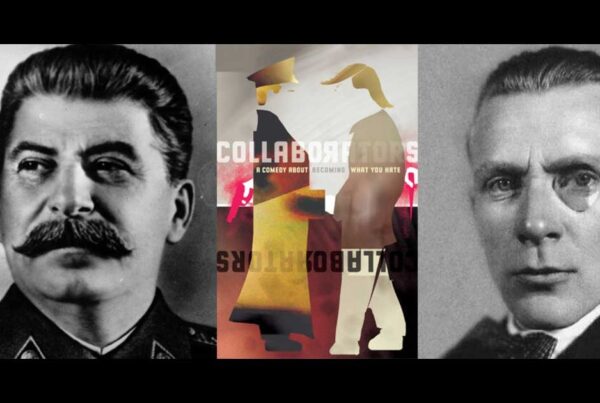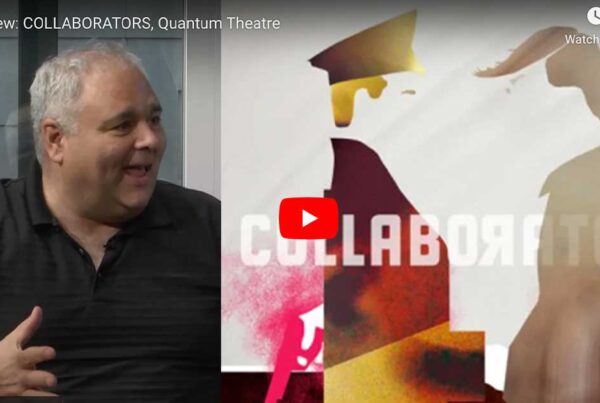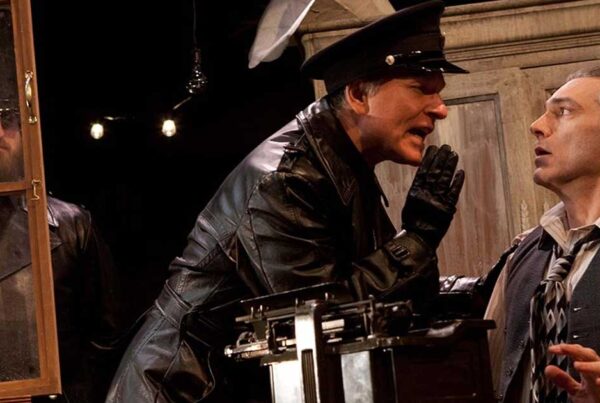
Pittsburgh Post-Gazette – “Trainspotting” writer John Hodge has mined a nugget of Russian history to address art vs. tyranny in “Collaborators,” a surrealist play about the time dissident writer Mikhail Bulgakov produced a work to celebrate Joseph Stalin’s 60th birthday.
Bulgakov’s anti-Bolshevik works were often censored or banned, and the playwright was stalked by Stalin’s secret police, so “you just have to sit and go, ‘Why would this have happened?’ ” said Jed Allen Harris, who will direct the U.S. premiere of “Collaborators” this weekend for Quantum Theatre.
“That’s the launch point of the whole play,” Mr. Harris continued. “You look at the screenplay for ‘Trainspotting’ and it’s doing that same thing. It’s moments of horror and tragedy and weird comedy.”
Mr. Hodge has created the nightmarish scenario that might have played out in the mind of a fellow writer willing to bargain with the devil to gain freedom from persecution.
“Trainspotting” is the 1996 film about heroin addicts in a downtrodden area of Edinburgh that earned Mr. Hodge an original screenplay Oscar nomination. A sequel with the same actors, “T2: Trainspotting,” opened in U.S. theaters last week — timing that was purely coincidental for Quantum’s production.
The play “Collaborators” premiered in 2011 at London’s Royal National Theatre and won the Olivier Award for the best new play produced in Britain. The Telegraph critic Charles Spencer deemed it a “gripping, disturbing and often blackly comic drama.”
Mr. Harris wanted to take on the surrealist work immediately after Quantum leader Karla Boos sent it to him three years ago, but it took the tenacious Ms. Boos three years to secure the rights.
“It’s a privilege right now to be making a play about protest, by an artist driven to protest a cruel (and ultimately unworkable) society led by a despot,” Ms. Boos said. “It’s a complicated, fascinating play, too. We get inside the mind, the conundrums of Stalin every bit as much as Bulgakov.”
Mr. Harris describes it as “a beast of a play” that calls for a large cast, which is perhaps one reason it has not had a larger life outside of the original National Royal Theatre production. There is also the matter of a play by a screenwriter who pieces together many short scenes, so there have been tweaks of transitions and the doubling up of several roles to accommodate Quantum’s relatively modest cast of 11, led by Tony Bingham as Bulgakov and Martin Giles as Stalin.
Mr. Harris also has reassembled his design team — Narelle Sissons, Susan Tsu, C. Todd Brown and Joe Pino — from Quantum’s “The Task,” a 2010 production he deems his best.
Taking on any job at Quantum requires the added step of finding an available venue. Mr. Harris’ preference would have been “an old abandoned mansion, but that usually means it’s only going to seat about 50 or 60, and that makes it economically unviable.”
Some sites were deemed “too comfortable” for the play, and finally they found a former warehouse and put the design team to work. This one might prove to be uncomfortable in a way familiar to Quantum regulars — it was freezing inside on a sunny, breezy March day.
That same day, as Mr. Harris was interviewed in the gravel lot beside the building, cast members began to arrive, armed with winter coats. Mr. Bingham and Mr. Giles drove in together.
Three years earlier, after reading just a few scenes in which Stalin can turn on the charm or turn steely with malevolence, the director thought, “This is the role for Marty.” He had worked with Mr. Giles before and directed Mr. Bingham for Quantum’s “Pantagleize” in 2014.
“Tony made so much sense as Bulgakov, because he has that combination of vulnerability and comic timing, which is rare.”
Ken Bolden portrays Vladimir, a secret police officer described by Ms. Boos as “fascinating and hilarious. He’s not just an enforcer. He’s a real guy who gets invested in this play they’re creating, and we see him on the way down in the cutthroat world where no one with any power is safe or above suspicion.”
The cast is a combination of new faces and actors whom Mr. Harris has collaborated with before in four decades of teaching and directing.
Ten years ago, when he was directing “Key to the Field” for Bricolage Productions, the Post-Gazette noted that for 15 years Mr. Harris had rarely strayed from within the confines of Carnegie Mellon University School of Drama, where he has been an educator and director since 1990.
“CMU has provided me with a safety net where I can do big shows there that I never would do in a small or even medium professional theater, and shows of substance and danger that outside of schools, people don’t do anymore,” Mr. Harris said. “So it affords me the luxury of being able to say ‘no.’ I have been fortunate that there have not been too many shows in my 40-year career that I go, ‘Boy, I wish I wouldn’t have done that.’ “
The “Collaborators” was an offer he couldn’t refuse.
“I love the cleverness of it, the wild swings between realism and nonrealism, which is what my game is,” the director said. “It’s a typical script that I am attracted to because it’s this weird conglomeration of humor and tragedy and intelligence and silliness and everything I like about the theater.”




